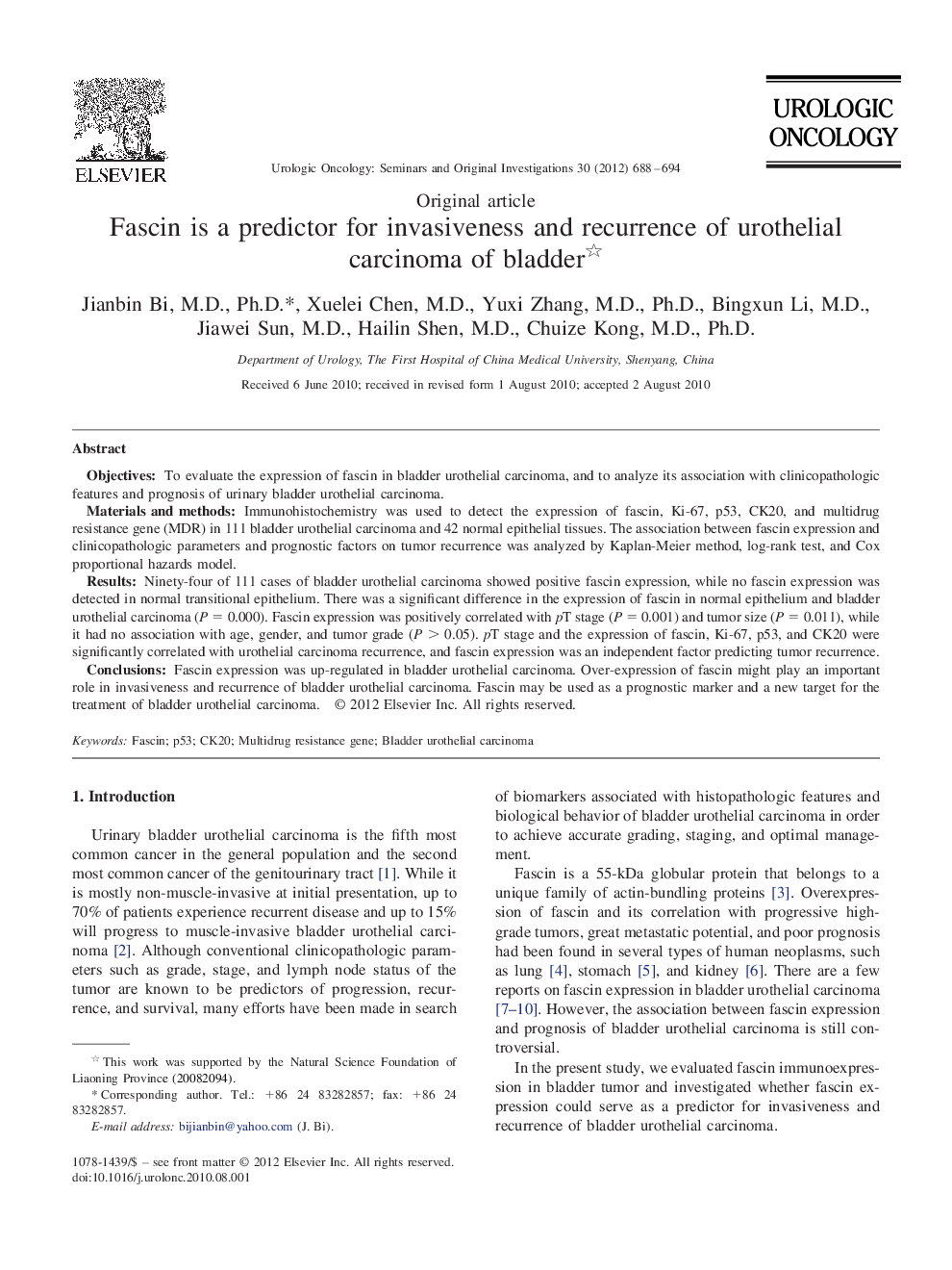| Article ID | Journal | Published Year | Pages | File Type |
|---|---|---|---|---|
| 4000213 | Urologic Oncology: Seminars and Original Investigations | 2012 | 7 Pages |
ObjectivesTo evaluate the expression of fascin in bladder urothelial carcinoma, and to analyze its association with clinicopathologic features and prognosis of urinary bladder urothelial carcinoma.Materials and methodsImmunohistochemistry was used to detect the expression of fascin, Ki-67, p53, CK20, and multidrug resistance gene (MDR) in 111 bladder urothelial carcinoma and 42 normal epithelial tissues. The association between fascin expression and clinicopathologic parameters and prognostic factors on tumor recurrence was analyzed by Kaplan-Meier method, log-rank test, and Cox proportional hazards model.ResultsNinety-four of 111 cases of bladder urothelial carcinoma showed positive fascin expression, while no fascin expression was detected in normal transitional epithelium. There was a significant difference in the expression of fascin in normal epithelium and bladder urothelial carcinoma (P = 0.000). Fascin expression was positively correlated with pT stage (P = 0.001) and tumor size (P = 0.011), while it had no association with age, gender, and tumor grade (P > 0.05). pT stage and the expression of fascin, Ki-67, p53, and CK20 were significantly correlated with urothelial carcinoma recurrence, and fascin expression was an independent factor predicting tumor recurrence.ConclusionsFascin expression was up-regulated in bladder urothelial carcinoma. Over-expression of fascin might play an important role in invasiveness and recurrence of bladder urothelial carcinoma. Fascin may be used as a prognostic marker and a new target for the treatment of bladder urothelial carcinoma.
